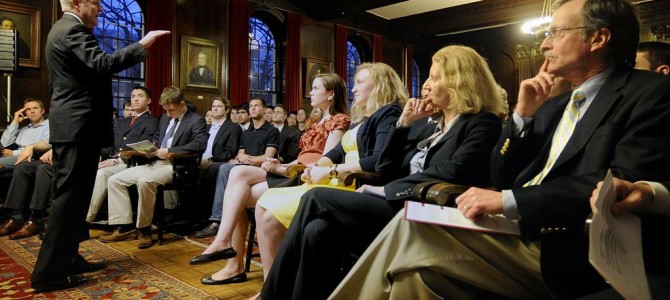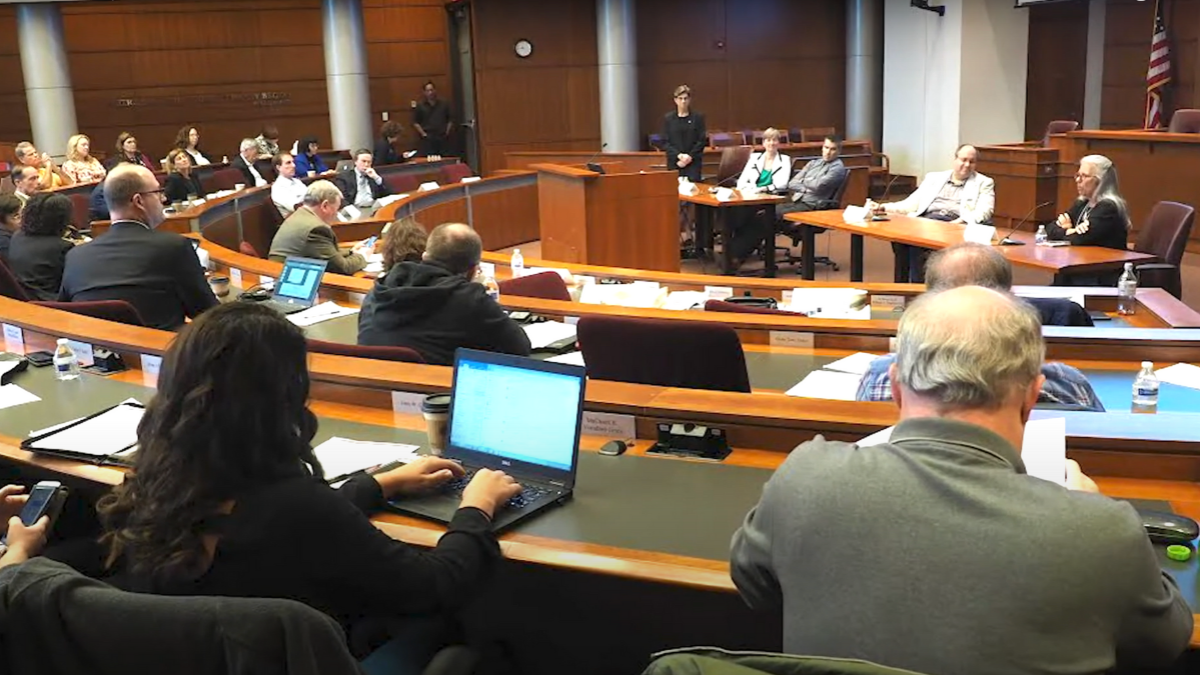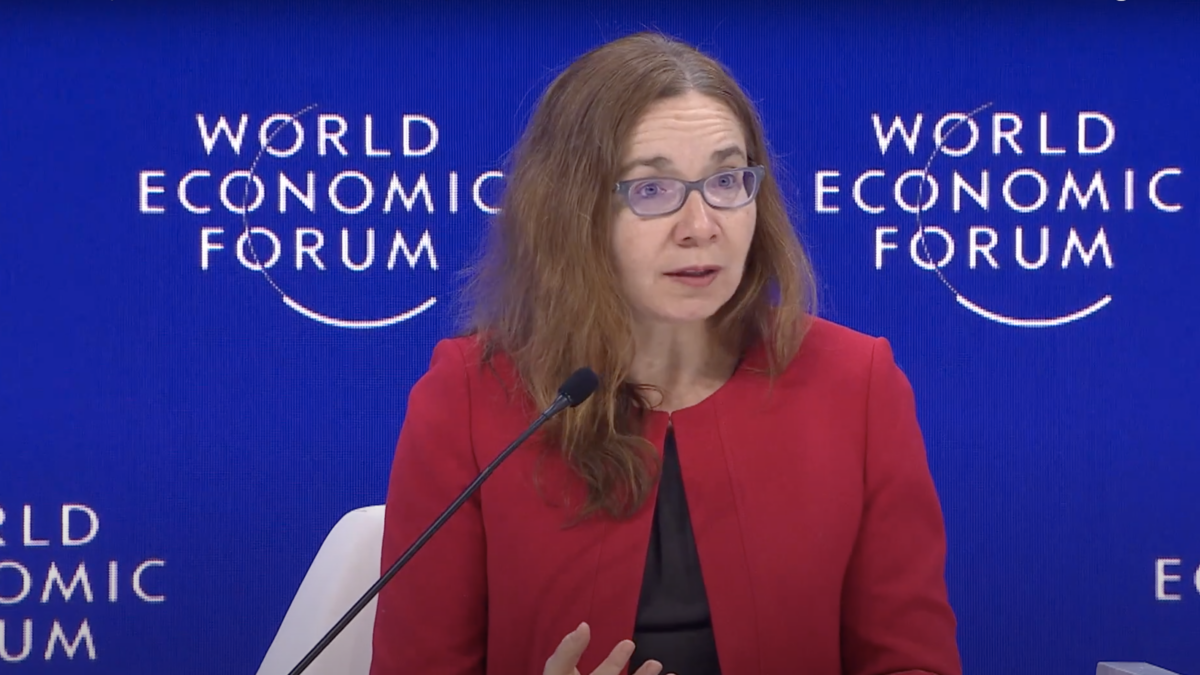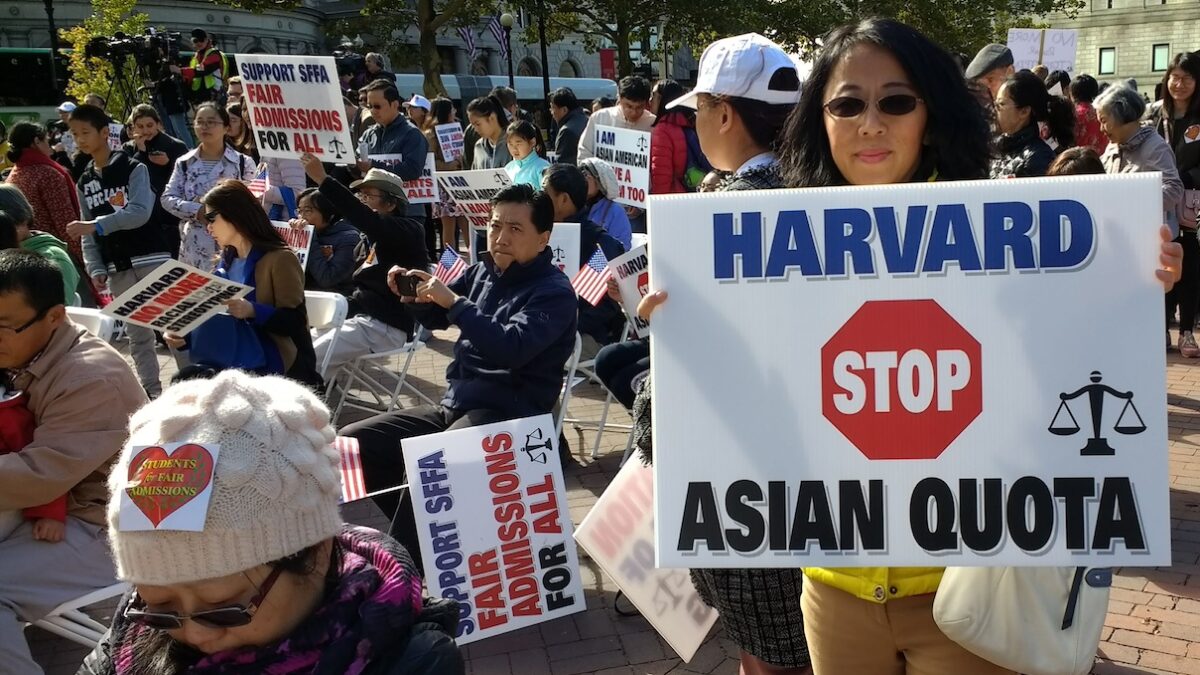
“Passing on the Right: Conservative Professors in the Progressive University” by John A. Shields and Joshua M. Dunn Sr. is a short book surveying the experiences of right-wing social science and humanities professors in the United States. Conservative discomfort with the American academy and its leftward biases has been a fixture of American politics at least since the 1950s. However, research shows that leftward bias within the university system has grown significantly since the 1980s.
Shields, a professor at Claremont McKenna College, and Dunn, a professor at the University of Colorado-Colorado Springs, engage with this growing political homogeneity. Their book documents the experiences of 153 right-leaning professors in the social sciences and humanities (spoiler: they find conservatives getting less than a fair shake).
Q: In your book, you include libertarians in the conservative camp, along with social conservatives and foreign policy neoconservatives. That characterization is something many libertarians would take issue with, given their philosophical and political differences with those other groups. Why did you include them?
A: The American conservative movement is best understood not as a cohesive ideological movement, but rather as a coalition of various factions opposed to liberalism. Libertarians have long been members of that coalition, though often the most disgruntled ones, especially since the end of the Cold War. In fact, not a single libertarian professor we interviewed identifies with the Democratic Party.
Q: Your book contains the accounts of several conservative academics who had “coming out” experiences, which they compared to homosexuals coming out about their sexual identities. Did either of you have a notable experience when you “came out” as a conservative?
A: No. We’ve generally been open about our politics. Perhaps we lack the conservative virtue of prudence. However, if we had pursued careers in more politicized disciplines, such as sociology or history, we probably would have been more careful.
Q: The key theme of your book is homogeneity within the American university system. Do you believe this feature has grown more noticeable in recent years and decades?
A: Yes it has. Conservatives are actually less well-represented in the American professoriate than all current targets of affirmative action, including African Americans and Latinos. And while the representation of Latinos and blacks continues to increase, the percentage of conservatives has declined since 1990. See here.
Q: According to your analysis, self-exclusion is the main factor limiting the influence of conservatives within academia. Do you think this is driven by outright hostility toward conservatives in the social sciences or humanities, or the fact that certain fields (sociology and anthropology, for example) seem to rely on a set of assumptions that are viewed as inherently left-wing?
A: There is much that we still don’t know about why conservatives are so scarce in academia. We do know that the usual explanations—that they’re too closed-minded or money grubbing—are not well supported by the empirical evidence. We also know that once an imbalance occurs, it is self-reinforcing, especially in those fields shaped by left-wing interests and theories.
If you’re a young person on the Left considering a job in academia, for example, you’re likely to find sociology, history, philosophy much more appealing than, say, economics. And, if you’re a conservative, you’ll be more likely to gravitate toward economics. There is also evidence that the intrepid conservatives who venture into left-wing disciplines face discrimination. But, for the most part, discrimination is simply unnecessary in those fields because conservatives don’t enter them.
Q: Confirmation bias in the peer-review process is another factor that often weighs against conservatives. Do you think liberal reviewers consciously apply stricter standards to work that is perceived to be conservative?
A: It’s not necessarily a “conscious” bias. That’s what makes confirmation bias so powerful, and why it can never be fully checked by norms of objectivity.
Q: You mention in your book that anti-conservative bias stems largely the fact that liberal professors are not often exposed to conservative viewpoints. Do you observe conservative academics attempting to offer alternatives to the less-articulate opinions expressed by politicians and pundits?
A: Certainly many try to correct the views of their colleagues simply by being good university citizens and thoughtful ambassadors for conservative ideas. And, of course, some of the more prominent professors we interviewed try to shape conversations outside the universities they call home. But, unfortunately, these reasonable voices are often muted these days by the far less temperate voices of conservative populists in the media and politics.
Q: How would you critique (or defend) the view commonly expressed by conservative politicians that the academy is effectively a liberal information bubble?
A: There is evidence that the political homogeneity of the academy does create an echo chamber. In chapter seven we discuss how many disciplines have been impoverished because of this homogeneity. For decades, sociologists, for instance, resisted blindingly obvious evidence that family breakdown is harmful for kids. In history, the liberal narrative that the progressive movement was an unalloyed good caused it to largely ignore its racism and xenophobia.
Feminists, meanwhile, ignored strong evidence that gender is not merely a social construct—that there are actual sex differences between men and women. Research on the negative consequences of racial preferences in university admissions for minority students has only been conducted very recently. The list goes on and on.
Political homogeneity also harms students. They are often not exposed to thoughtful conservative perspectives, partly because social scientific knowledge itself has been so profoundly shaped by leftist interests and perspectives. The university is also one of the few institutions in our polarized nation that could expose students to reasonable and civil debates across the ideological divide. But that example is really hard to provide when there are not conservative professors on campus.
Q: It being election year, Americans are more opinionated than usual. Have you detected a bias toward or against certain presidential candidates during your interactions with other conservative academics?
A: Conservative professors tend to prefer established candidates with a long record of successful governance. And unlike many of their progressive colleagues, conservative professors tend to be leery of populist movements. Their anti-populism leaves them concerned with the direction of the Republican Party, which was shaken first by the Tea Party and now by the rise of Donald Trump. Making matters worse, Trump isn’t even a conservative; he’s a nationalist.
Q: Your book, as well as the op-ed you wrote for the Washington Post, actually argues that life is not so bad for conservative professors. You focus on the academic freedom conservatives enjoy after they’ve gained tenure, arguably to the point of underselling the struggles of assistant professors and grad students. How would you address such a criticism?
A: There is no doubt that many conservatives face some discrimination because of their politics. However, you can’t eliminate political bias from the university, partly because political bias reflects an intellectual orientation. That is, our politics inclines us to find some questions interesting and certain explanations more plausible than others. So bias is never going away.
Those challenges that do exist in the university are also usually manageable. Conservatives can and do succeed despite real challenges. Overstating the obstacles conservatives have to overcome may also make the problem of left-wing dominance of the university even worse.
Q: Let’s imagine that I’m a conservative undergraduate considering a career in academia. What words of advice and encouragement do you have for me?
A: First, be aware that the job market for all PhDs regardless of their politics is terrible. The primary reason not to pursue an academic career is not because you are conservative but because there is a glut of PhDs. Second, think of yourself of a scholar first and a conservative second. Third, read our book! It will help you navigate the academic landscape.









